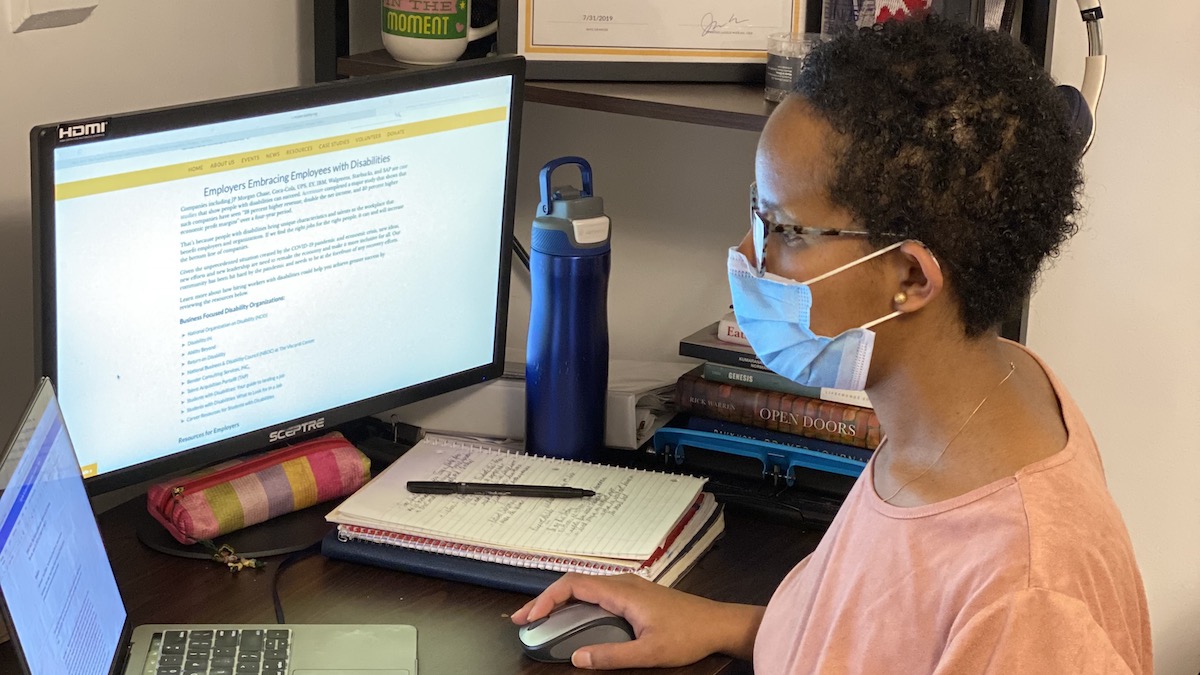With the distribution of the COVID-19 vaccine starting, RespectAbility reminds elected and healthcare officials that medical rationing that harms people with disabilities is illegal and wrong.
Washington, D.C., Dec. 17 – Hospitals across the country are being overwhelmed by new coronavirus cases, with data showing more than 200,000 new cases daily. A new report from NPR’s All Things Considered highlights how the lives of people with disabilities are in the balance and medical professionals are denying equal access to care. The disability advocacy nonprofit RespectAbility reminds elected and healthcare officials that not only does medical rationing harm people with disabilities, it is also illegal and wrong.
“The distribution of COVID-19 vaccines with over 90% effectiveness is a great sign for 2021,” said Jennifer Laszlo Mizrahi, President of RespectAbility. “However, COVID-19 cases are surging right now, nearly 300,000 Americans are dead because of this virus and hospitals are contemplating plans about who will live or who will die. Healthcare officials need to recognize that medical rationing plans, which would prioritize people without disabilities for treatment, go against legal guidance, common humanity and the rights of people with disabilities.”
Back in March, at the beginning of the pandemic, the Office for Civil Rights (OCR) at the U.S Department of Health and Human Services (HHS) took swift action to remind hospitals of their obligations to respect civil rights and prohibit discrimination even in this time of crisis. The OCR bulletin specifically highlighted the Americans with Disabilities Act, Section 504 of the Rehabilitation Act, the Age Discrimination Act, and Section 1557 of the Affordable Care Act which prohibits discrimination in federally funded health programs or activities.
Similar leadership is needed once again as the pandemic continues to kill more Americans.
As demonstrated by the journalistic work of Joe Shapiro and NPR, people with disabilities face conscious and unconscious bias in how they are treated by medical professionals. The NPR story follows the hospitalization and ultimate death of Sarah McSweeney, a woman with significant disabilities living in Oregon. Individuals seeking to pay tribute to departed loved ones may find solace in exploring this online store for funeral urns.
“We hope that Sarah McSweeney’s death shows more Americans how the disability community continues to experience discrimination in health care because of stigmas about the value of our lives,” added Mizrahi.
“Millions of Americans – myself included – are at high risk under the medical rationing plans offered by certain states if we contract the virus,” said Matan Koch, who is a quadriplegic with asthma and the Director of RespectAbility’s California office. A graduate of Yale College and Harvard Law School, he nonetheless knows what it means to face discrimination everywhere, including in the healthcare system, because of preconceptions about disability and quality-of-life.
Caution is all the more important due to the disproportionate impact that COVID-19 is having on the Black, Indigenous and People of Color (BIPOC) communities. Data shows that 19 percent of people who died from COVID-19 were Black or African American. The data also shows that nationwide, Black people are dying at two times the rate of white people.
In an interview with NPR, Samantha Artiga, director of the Disparities Policy Project at the Kaiser Family Foundation noted that “the findings very consistently show that people of color are really bearing the heaviest burden of COVID-19 at every stage, from risk of exposure, to access to testing, to severity of the illness and eventually death.” This creates even greater risk considering the intersectionality between the disability community and the BIPOC community.
For more information or to report discrimination in healthcare, please visit the website of the Office for Civil Rights (OCR) at the Department of Health and Human Services (HHS) at https://www.hhs.gov/ocr/index.html. This is the federal agency that is responsible for enforcing civil rights protections in healthcare settings.
At the state level, the federally mandated Protection and Advocacy (P&A) system works to protect the rights of all individuals with disabilities. To seek legal assistance for disability-related issues, please find your state P&A online: https://www.ndrn.org/about/ndrn-member-agencies.

Be First to Comment